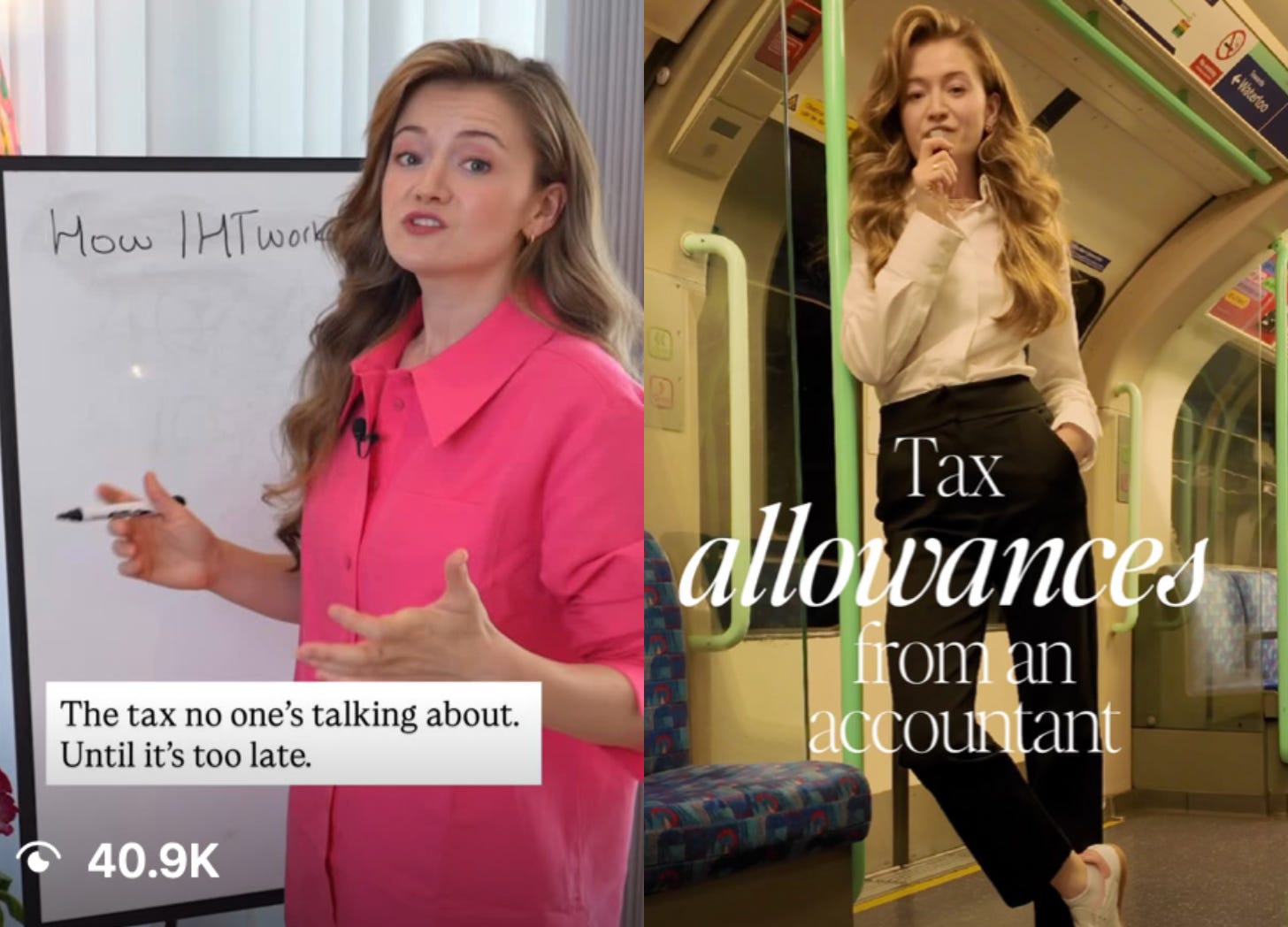5 money hacks from influencer Abigail Foster
Influencer Abigail Foster wants us to stop feeling bad about our finances and start asking better questions.

Imagine if, instead of equations you’ve never used, or history dates you’ve mostly forgotten, school had taught you how to read your pay cheque.
Or what a credit score actually is. Or how to spot a payday loan trap before it starts draining your bank account.
Abigail Foster is trying to make up for that gap. A chartered accountant turned financial educator, based in the UK, she’s the founder of Elent, a platform giving young people - especially women - the tools to feel confident about money.
Online, the 30-year-old is better known as @abigailrosefoster, where she shares jargon-free advice on everything from savings goals to student debt.
She feels that real empowerment has to include financial confidence. Not just the freedom to earn, but the education to use that money wisely, to grow it, protect it, and back ourselves in the long term.
“We're seeing this rise of female empowerment, and I don't think we're seeing the [financial] education matched to that,” she explains.
The result is what she calls “vulnerable empowered women”: full of potential, but left without the tools to make strong financial choices.
Foster shared the five money lessons she believes everyone should know, for The Female Lead’s #CloseTheMoneyGap campaign.
1. Know what you're actually being paid
“I’d go as far as to say 90% of people don’t understand their payslip,” says Foster.
In the UK, things like tax codes, student loans and pension contributions can all affect your take-home pay - and many people don’t spot mistakes for years.
“The first thing you need to do is learn how to read your payslip. Your pay is your responsibility, not your employer’s.”
Here are the key things to check if you are in the UK:
Tax code – shows your personal allowance (how much you can earn before paying income tax). Most people are on 1257L.
Pension contributions – check if you're getting the full match from your employer.
Other deductions – like student loan repayments, which come out automatically once you hit the threshold.
2. Debt isn’t always the villain
There’s a difference between the kind of debt that helps you build your future and the kind that drags you down, Foster says.
“Debt gets talked about like it’s all bad,” she says. “But a mortgage or a student loan isn’t the same as a credit card with 25% interest.”
“You can use credit cards in a positive way, but understand the difference between a good debt versus a bad debt where you're buying outside of your financial capabilities and you are causing financial harm to yourself.”
She believes good debt is borrowing that helps build your future, like a student loan or mortgage, while bad debt is borrowing for things that lose value or aren’t affordable, like unpaid credit card bills or buy-now-pay-later schemes.
“We should’ve been taught how interest works, how to borrow well if needed, and how to avoid spiralling.”
3. Budgeting isn’t restriction - it’s freedom
Budgeting often gets represented as a spreadsheet, a sacrifice, or a guilt trip. But for Foster, it’s something else entirely: a way of taking back control.
“We should’ve been taught to budget based on real life,” she says. “Not some ideal that makes you feel like a failure every month.” As Foster puts it, “it’s the power you get from just having awareness.”
Sometimes the first step is the simplest: “just to be at home and write out everything you’ve got – all the bank accounts, where they are, what the percentage is on them – and that’s it. That’s as much as you need to do in the first job.”
And often, especially as women, “we’re very good at helping others but not always very good at helping ourselves,” she says.
Her goal isn’t to stop you buying the coffee - it’s to make sure you know what’s left in your account after you’ve bought it.
4. Your credit score matters - whether you like it or not
Most people only find out what a credit score is when they get rejected for something. But it can affect your ability to rent, get a mortgage, even access a phone contract.
“Your credit score is like a trust rating for your financial habits,” Foster explains. “It’s not about being ‘good’ with money. It’s about consistency.”
She says you can build a good score early by paying bills on time, not maxing out credit cards, and checking your report regularly. The better your score, the less you’ll have to pay for things in the long run.
Here are some key ways to boost your credit score according to Foster:
Keep your credit card spending below 30% of your total credit limit
Build a strong credit history over time
Register to vote (in the UK) to help verify your identity
Always pay off your credit card balance in full and on time
5. Investing isn’t just for rich people
There’s still a perception that investing is for older wealthy men in suits. Foster wants to dismantle that completely.
“I will never, ever be able to (and no one should ever) tell you that investing is 100% safe,” she says. “What I can tell you is, if you look at the numbers – leaving your money in a current account, due to inflation, the value of what that money can buy will decrease over time.”
If that sounds abstract, here’s the reality: “If you had just invested in something like the S&P 500” – a collection of 500 of the biggest companies in the US (E.g Apple and Amazon) - “on average, it returns 7% to 8%, which often beats inflation. This means that actually all your money is growing over time. And so the purchasing power of your money is increasing.”
Related articles
Understanding investing means understanding things like compound interest – where your money earns interest on both your original amount and the interest it’s already gained. Inflation slowly erodes the value of your money, so doing nothing can mean losing spending power over time.
“We should’ve been taught about this at school,” Foster says. “Doing something with your money – even just a little – is better than doing nothing at all.”.
Bonus lesson: the most powerful investment is in yourself
Beyond stocks, pensions or property, Foster wants to reframe the idea of investing altogether.
“People forget that spending money on themselves isn’t a bad thing,” she says. “You can spend money on levelling up your skills, which gives you a pay rise, which helps you buy the things you want.”
What frustrates her most is a double standard: “People will invest in the stock market, but won’t invest in their own businesses.”
Whether it’s learning a new skill, starting a side hustle, or just getting to grips with your own financial life, Foster’s message is: you don’t have to get it perfect, you just have to get started.
Disclaimer: This article is for informational purposes only and is not intended to be personal financial or legal advice.







This was such a great chat and the write up has been so brilliant! Thank you for having me x